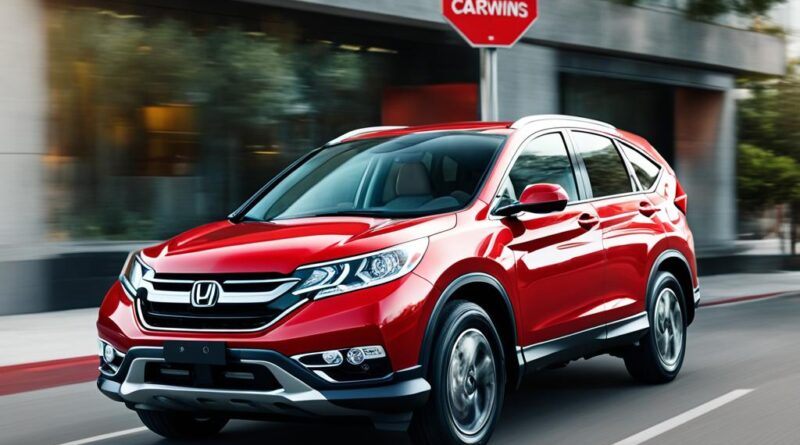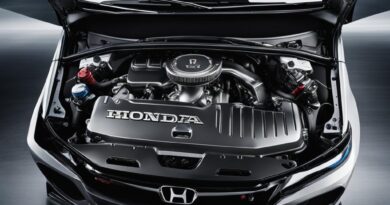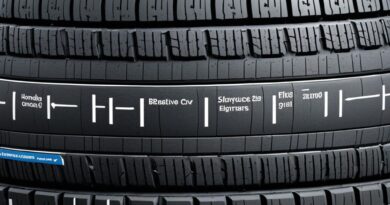Honda CR-V Years to Avoid for Reliable Purchase
The Honda CR-V has been a popular choice for compact crossover enthusiasts for many years. However, it’s important to be aware that certain model years of the Honda CR-V have shown reliability concerns and known issues. By understanding which Honda CR-V years to avoid, you can make a more informed decision and ensure a more reliable purchase.
Key Takeaways:
- Avoid purchasing the first year of a new CR-V model or a redesign to minimize potential “teething problems.”
- The second-generation Honda CR-V (model years 2002-2006) had increased engine, electrical, and major system issues.
- The third-generation Honda CR-V (model years 2007-2011) saw initial problems with electrical issues, malfunctioning door locks, and prematurely wearing tires.
- For the fourth-generation Honda CR-V (model years 2012-2016), the 2012 model year had some initial electrical and engine issues.
- The first year of the fifth-generation Honda CR-V (model years 2017-present) had significant engine troubles and overall complaints, but later years showed improvements.
By avoiding the problematic years and opting for more reliable models, you can enjoy a safer and more dependable Honda CR-V experience. It’s always recommended to have a trusted mechanic inspect any potential issues before finalizing your purchase.
Honda CR-V Generations
Honda has produced five generations of the CR-V, starting from the first-generation in 1997. It’s important to understand the different generations when considering a purchase, as each generation can have its own set of known issues and concerns.
| Generation | Model Years |
|---|---|
| First Generation | 1997-2001 |
| Second Generation | 2002-2006 |
| Third Generation | 2007-2011 |
| Fourth Generation | 2012-2016 |
| Fifth Generation | 2017-present |
First-generation Honda CR-V Years to Avoid
The first-generation Honda CR-V, which includes model years 1997-2001, is known for its reliability concerns and known issues. When a new model is introduced, it’s not uncommon to encounter “teething problems,” and the CR-V’s first model year owners reported engine and electrical troubles as the most significant issues. As a result, it is generally recommended to avoid purchasing a new model during its first year or a redesign.
If you’re considering buying a first-generation Honda CR-V, it’s important to be aware of the potential reliability issues associated with these model years. Conducting thorough research and getting a pre-purchase inspection from a trusted mechanic can help you make an informed decision.
| First-generation Honda CR-V Years | Common Issues |
|---|---|
| 1997 | Engine and electrical problems |
| 1998 | Engine and electrical problems |
| 1999 | Engine and electrical problems |
| 2000 | Engine and electrical problems |
| 2001 | Engine and electrical problems |
As seen in the table above, engine and electrical problems were commonly reported across the first-generation Honda CR-V years. These issues can lead to unexpected breakdowns, costly repairs, and potential safety hazards.
“The engine troubles in the first-generation Honda CR-V can be a significant concern for potential buyers. It’s important to thoroughly inspect the vehicle’s history and have a complete understanding of its maintenance and repair records.”
By avoiding the first-generation Honda CR-V years, you can minimize the risk of encountering these known issues and ensure a more reliable purchase. Consider exploring later generations or model years with improved reliability and fewer reported complaints.

Note: The image above showcases a first-generation Honda CR-V, exemplifying its distinctive design and features.
Second-generation Honda CR-V Years to Avoid
The second-generation Honda CR-V, which encompasses model years 2002-2006, experienced a notable increase in engine and electrical issues compared to its predecessor. Additionally, this generation encountered problems with major systems such as the airbags and HVAC (Heating, Ventilation, and Air Conditioning). The reliability concerns and potential repairs associated with these issues make it crucial to exercise caution when considering a second-generation CR-V for purchase.
In order to mitigate the risks associated with this specific model year range, it is advisable to have a qualified mechanic thoroughly inspect any second-generation CR-V you are considering. Their expertise can help identify potential issues and provide an accurate assessment of the vehicle’s overall condition.
“Due to the increased prevalence of engine and electrical issues, as well as problems with major systems, it is crucial to exercise caution when considering a second-generation Honda CR-V.”
Key Points:
- The second-generation Honda CR-V spans model years 2002-2006.
- This generation exhibits a higher occurrence of engine and electrical issues.
- Airbags and HVAC (Heating, Ventilation, and Air Conditioning) problems are also common.
- Seeking a professional mechanic’s expertise is recommended before purchasing a second-generation CR-V.
Third-generation Honda CR-V Years to Avoid
The third-generation Honda CR-V includes model years 2007-2011. The first year of this generation, 2007, had several issues with electrical problems, malfunctioning door locks, and prematurely wearing tires. It’s recommended to avoid the 2007 model year and consider later years in this generation which had fewer complaints and addressed many of the initial problems.
During the third-generation Honda CR-V, the 2007 model year stood out for its reliability concerns. Owners reported various electrical problems, such as malfunctioning door locks, which could compromise the security of the vehicle. Additionally, premature tire wear was a common complaint, potentially leading to safety issues.
While the 2007 Honda CR-V had its share of problems, subsequent years in the third-generation showed improvement. Honda addressed many of the initial issues, resulting in fewer complaints from consumers. Therefore, it’s advisable to consider the later years in this generation for a more reliable purchase.
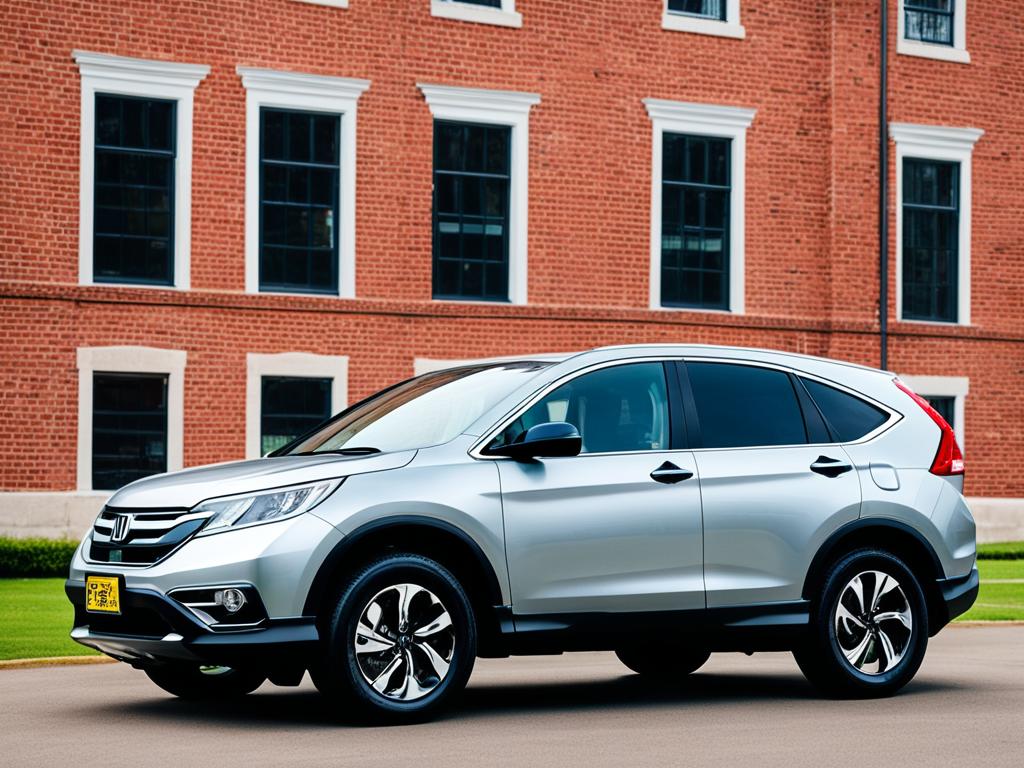
| Model Year | Known Issues |
|---|---|
| 2007 | Electrical problems Malfunctioning door locks Prematurely wearing tires |
| 2008-2011 | Fewer complaints Improved reliability |
Fourth-generation Honda CR-V Years to Avoid
The fourth-generation Honda CR-V includes model years 2012-2016. The 2012 model year, which was the first year of this generation, had some initial issues with electrical and engine problems. However, by the following years, the CR-V improved and had fewer reported complaints. It’s advisable to have a mechanic inspect any potential issues before purchasing a fourth-generation CR-V.
If you’re considering buying a fourth-generation Honda CR-V, it’s important to be aware of the specific model years and their known issues. While the 2012 model year had some initial problems, later versions of this generation have shown improvements in reliability. Nevertheless, it’s always a good idea to have a professional mechanic thoroughly inspect the vehicle before making a purchase.
By having a mechanic inspect the vehicle, you can identify any potential issues and make an informed decision about the condition and reliability of the car. This step is crucial in ensuring your investment is worthwhile and that you won’t encounter unexpected problems down the road.
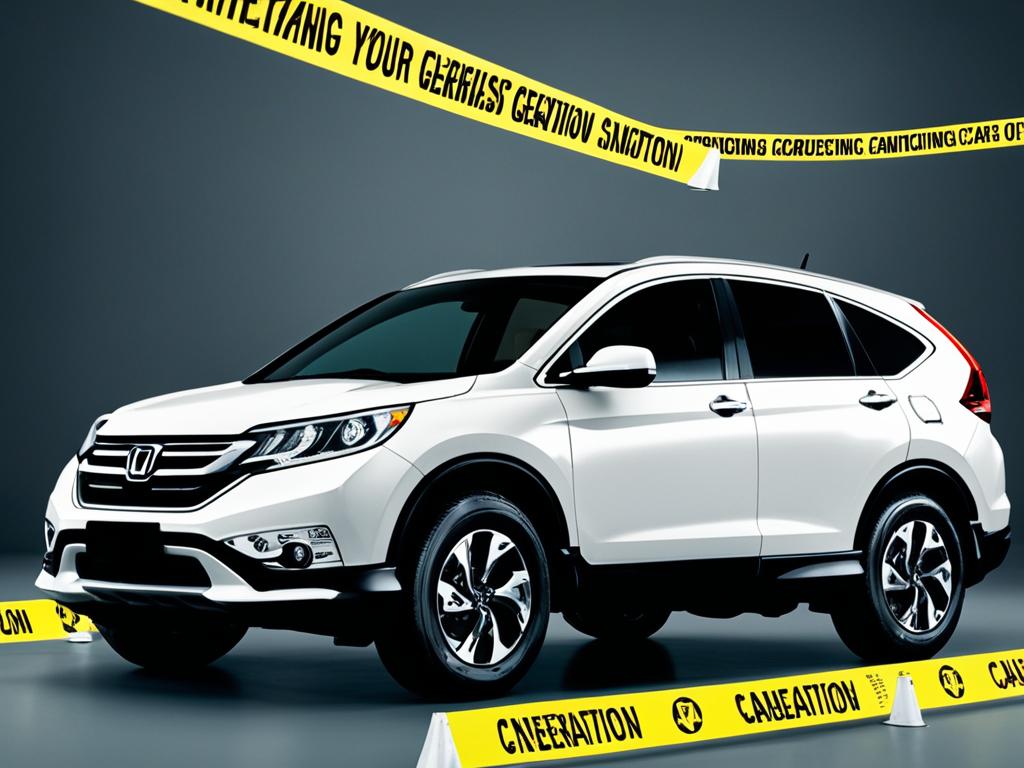
Common Issues with Fourth-generation Honda CR-V
- Electrical problems
- Engine issues
In the early years of the fourth-generation Honda CR-V, there were reports of electrical problems and engine issues. These concerns were most prevalent in the 2012 model year, but subsequent years saw a decline in reported complaints. Despite the improvements made in later years, it’s still important to be cautious and have a thorough inspection before finalizing your purchase.
Fifth-generation Honda CR-V Years to Avoid
The fifth-generation Honda CR-V includes model years 2017-present. The first year of this generation, 2017, had a significant number of reported engine troubles and overall complaints. However, as the years progressed, the CR-V improved and showed fewer issues. The 2019 model year, in particular, saw a significant decrease in complaints. It’s recommended to avoid the early years of this generation and consider later models for a more reliable purchase.

Conclusion
When considering purchasing a Honda CR-V, it’s essential to be aware of the specific model years that have shown reliability concerns and known issues. Avoiding these problematic years and opting for more reliable models can guarantee a safer and more dependable purchase. It is highly recommended to have a mechanic inspect any potential issues before finalizing your purchase.
The Honda CR-V has gone through different generations, each with its own set of problems. The first-generation CR-V (1997-2001) had engine and electrical troubles, which were more prevalent in the first model year. The second-generation (2002-2006) had issues with the engine, electrical systems, airbags, and HVAC. The third-generation (2007-2011) had problems with electrical components, door locks, and tires. The fourth-generation (2012-2016) had initial issues with the engine and electrical systems but improved in subsequent years. The fifth-generation (2017-present) faced engine troubles and complaints in the earlier years but showed improvement in later models.
To ensure a reliable purchase, avoid the worst Honda CR-V years and prioritize more recent models. By doing so, you can minimize common Honda CR-V reliability concerns associated with specific model years and generations. Conduct thorough research, consult with experts, and consider the advice of trusted mechanics to make an informed decision. With this knowledge, you can confidently purchase a Honda CR-V that meets your needs without worrying about potential year-specific problems or known issues.
FAQ
What are the Honda CR-V years to avoid for a reliable purchase?
It is generally recommended to avoid the first model year or a redesign when purchasing a Honda CR-V. Specifically, the following model years have shown reliability concerns and known issues: 1997-2001 (first generation), 2002-2006 (second generation), 2007 (third generation), 2012 (fourth generation), and the early years of the fifth generation (2017-2018).
What are the different generations of the Honda CR-V?
Honda has produced five generations of the CR-V. These include the first-generation (1997-2001), second-generation (2002-2006), third-generation (2007-2011), fourth-generation (2012-2016), and fifth-generation (2017-present).
Which years of the first-generation Honda CR-V should I avoid?
The first-generation Honda CR-V includes model years 1997-2001. It is generally recommended to avoid buying a new model during its first year or a redesign. Owners of the CR-V’s first model year reported engine and electrical troubles as the most significant issues.
Are there any problematic years for the second-generation Honda CR-V?
Yes, the second-generation Honda CR-V includes model years 2002-2006. This generation saw an increase in engine and electrical issues, as well as problems with major systems like the airbags and HVAC. It’s advisable to be cautious when considering a second-generation CR-V and have a mechanic inspect any potential issues before purchasing.
What should I know about the third-generation Honda CR-V?
The third-generation Honda CR-V includes model years 2007-2011. The 2007 model year had several issues with electrical problems, malfunctioning door locks, and prematurely wearing tires. It’s recommended to avoid the 2007 model year and consider later years in this generation, which had fewer complaints and addressed many of the initial problems.
Are there any known problems with the fourth-generation Honda CR-V?
The fourth-generation Honda CR-V includes model years 2012-2016. The 2012 model year, which was the first year of this generation, had some initial issues with electrical and engine problems. However, by the following years, the CR-V improved and had fewer reported complaints. It’s advisable to have a mechanic inspect any potential issues before purchasing a fourth-generation CR-V.
Are there any problematic years for the fifth-generation Honda CR-V?
The first year of the fifth-generation Honda CR-V, 2017, had a significant number of reported engine troubles and overall complaints. However, as the years progressed, the CR-V improved and showed fewer issues. The 2019 model year, in particular, saw a significant decrease in complaints. It’s recommended to avoid the early years of this generation and consider later models for a more reliable purchase.
Should I have a mechanic inspect a potential Honda CR-V purchase?
Yes, it is always advisable to have a mechanic inspect any potential issues before finalizing a Honda CR-V purchase. This can help identify any hidden problems and give you peace of mind about the reliability of your purchase.

